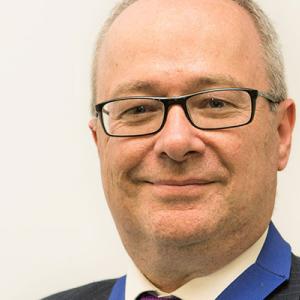By challenging local government to deliver Scandinavian-style public services funded by US levels of taxation the prime minister and chancellor are forcing us to think differently. We’re already bringing down the cost of services through technology, but we also need to enable people to take responsibility for their own lives and avoid becoming passive service recipients.
Could data be the new gold? Could it be the missing element that makes the difference in this demanding digital age? Speaking at the recent Open Data Institute Summit, Cabinet Office minister Matt Hancock argued that digital data is a minable commodity from which value and benefit can be extracted. My contention is that it’s your data, my data, the public’s data – so it should be our gold.
Like the Wild West pioneers, we need to think big and start prospecting. We need to open up the landscape, invest time and energy, and explore what’s out there. Like many councils, Staffordshire’s focus is on supporting people to live more healthily for longer, so information or content that empowers residents to make positive lifestyle decisions and plan to stay healthy could be gold dust.
Is this type of innovation the role of the public sector and local government in the UK? Sussex University economics professor Mariana Mazzucato (who spoke at the 2013 CIPFA conference) uses case studies to demonstrate that it absolutely should be. She argues that the private sector only finds the courage to invest after an entrepreneurial state has made the high-risk investments. Every technology – the Internet, GPS, Siri – that makes the smartphone so ‘smart’ was government-funded.
Our job as public servants is to make our ‘digital commons’, the digital assets that we collectively own, available to third parties through sharing and cooperation, in order to generate public value for the common good.
So what if the public sector enables the development of apps that are free for everyone, accessible on our phones and designed to benefit the public? What if our data is integrated across a range of public services that might enable a worried son or daughter to take early action to support an elderly parent? What if our health data triggers links to free local fitness or befriending activities?
Some local authorities are already trialling this approach. The Greater London Authority, for example, has promoted app development by making over 500 datasets publicly and freely available. Apps created as a result cover transport, school places and business workspaces.
Yes, there will be challenges, particularly around funding, but, encouragingly, many organisations have evidence of the returns on increased digital investment. It’s not just about technology and money, though – public bodies need to develop new skills and talents to take advantage of digital transformation.
Partnerships with universities, local employers and trusted suppliers, and accessing skills in the wider community through open data and co-creation, can be a rich source of capability and capacity to help deliver at pace. We need to actively involve residents in service design and adopt research-led methods to encourage people to engage with a digital public sector, as many already routinely do with the private sector.
The open data movement has grown rapidly in the US and mainland Europe, but data protection requirements sometimes stifle full openness in the UK. This is partly a response to concerns about the exploitation of personal data by commercial organisations, but there is huge untapped potential in promoting co-operation for mutual benefit using anonymised and aggregated personal data where necessary.
Our default should be extreme transparency – all government data should be open and available to all in an accessible and usable way. We should use our data to strengthen the ability of our institutions and our people to work more collaboratively and effectively, and to make better decisions and solve public problems.
Increased availability and use of data could transform the way we work. It could also improve democratic engagement, enhance citizenship and improve population outcomes. This is the debate I believe we need. Join me to think through how we can mine our data gold and put it to work for the public good.




















